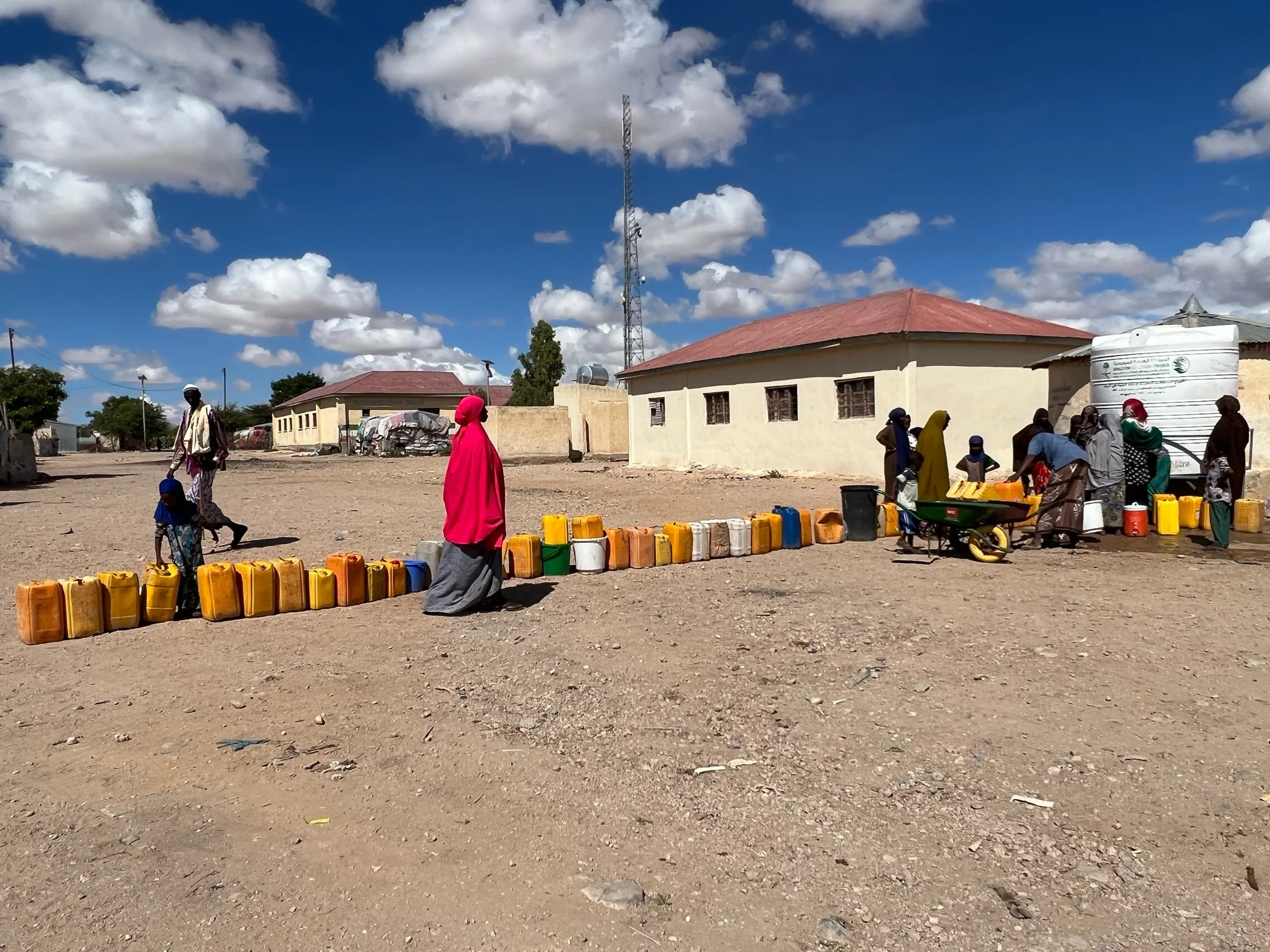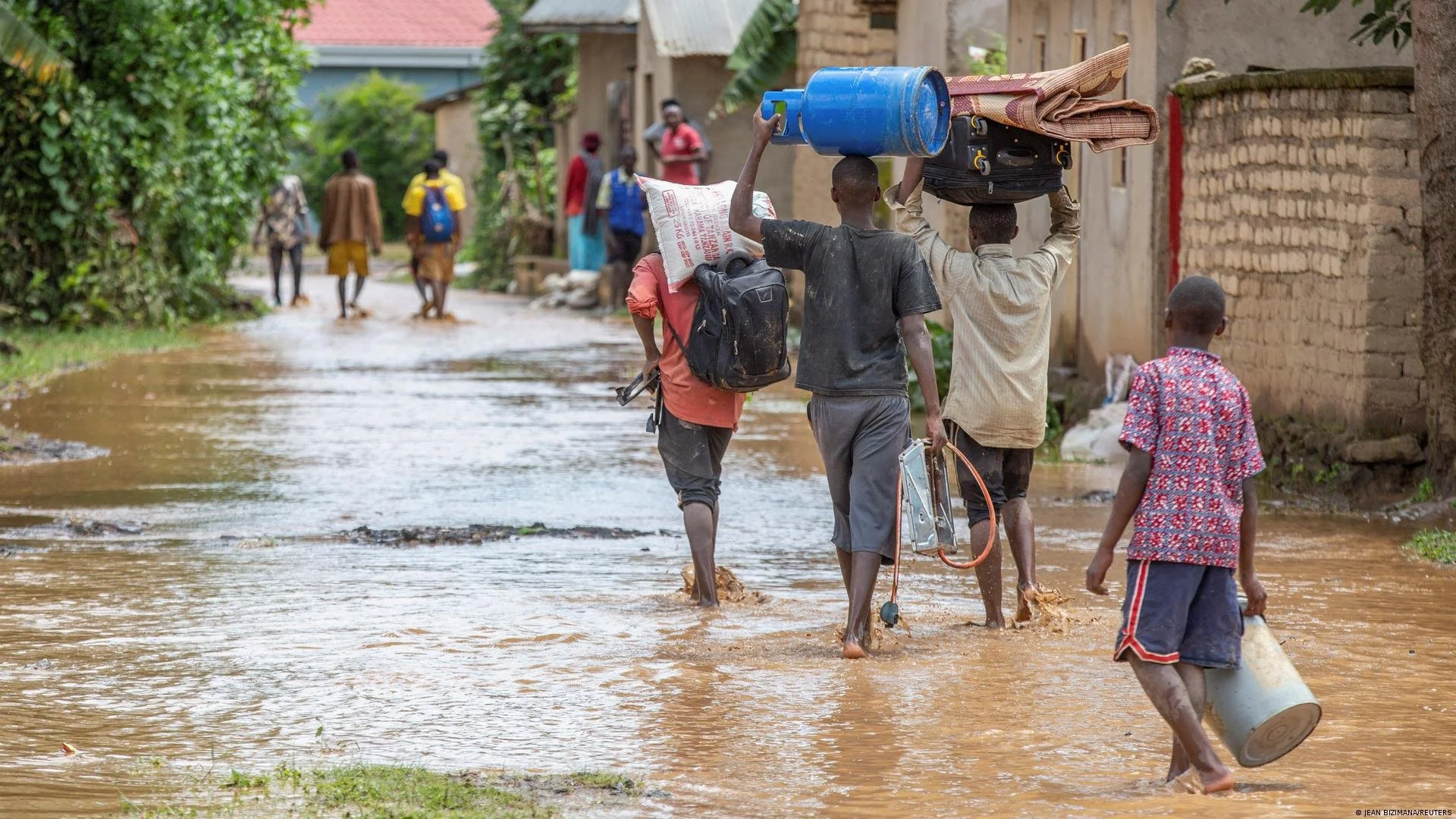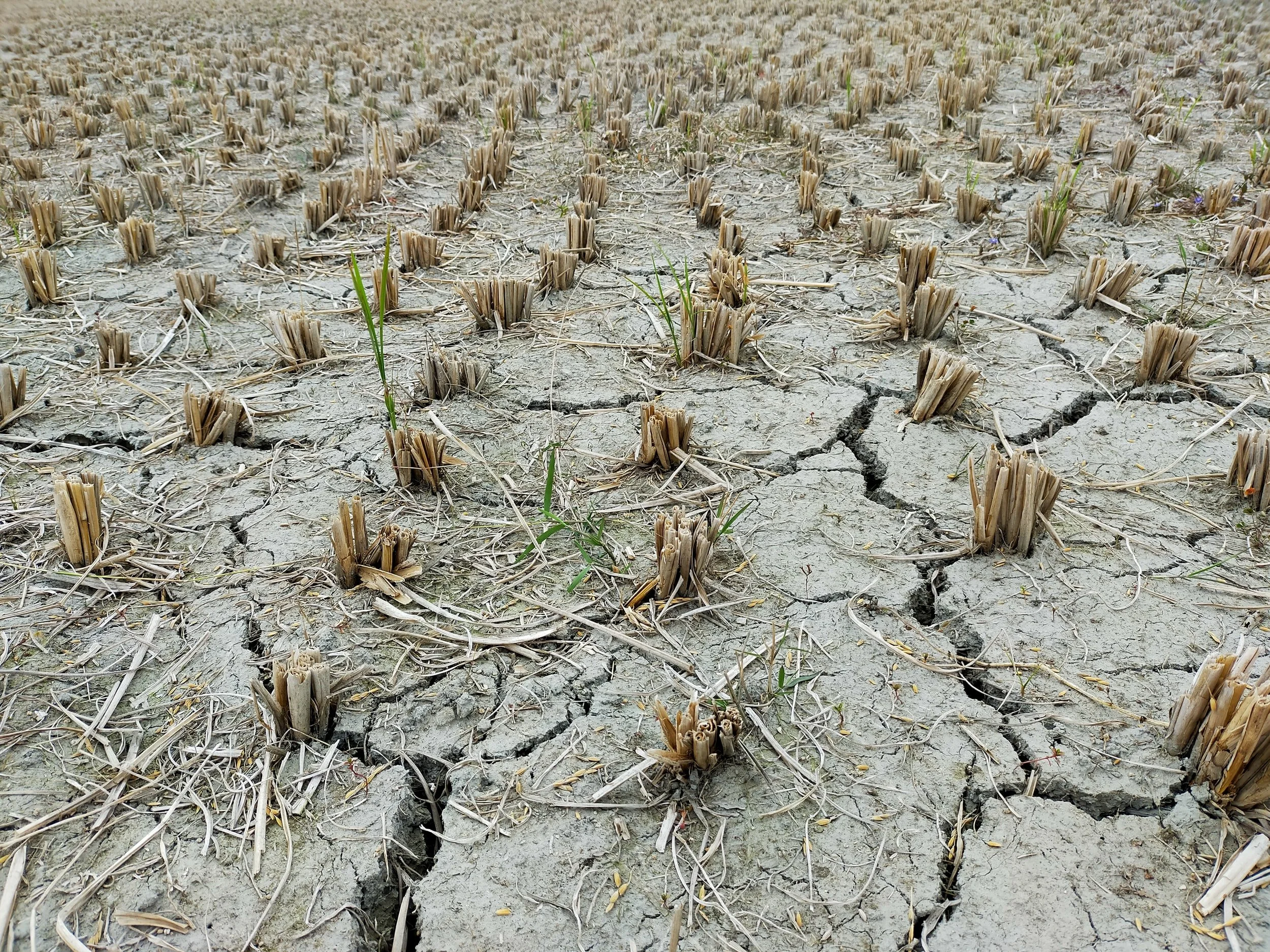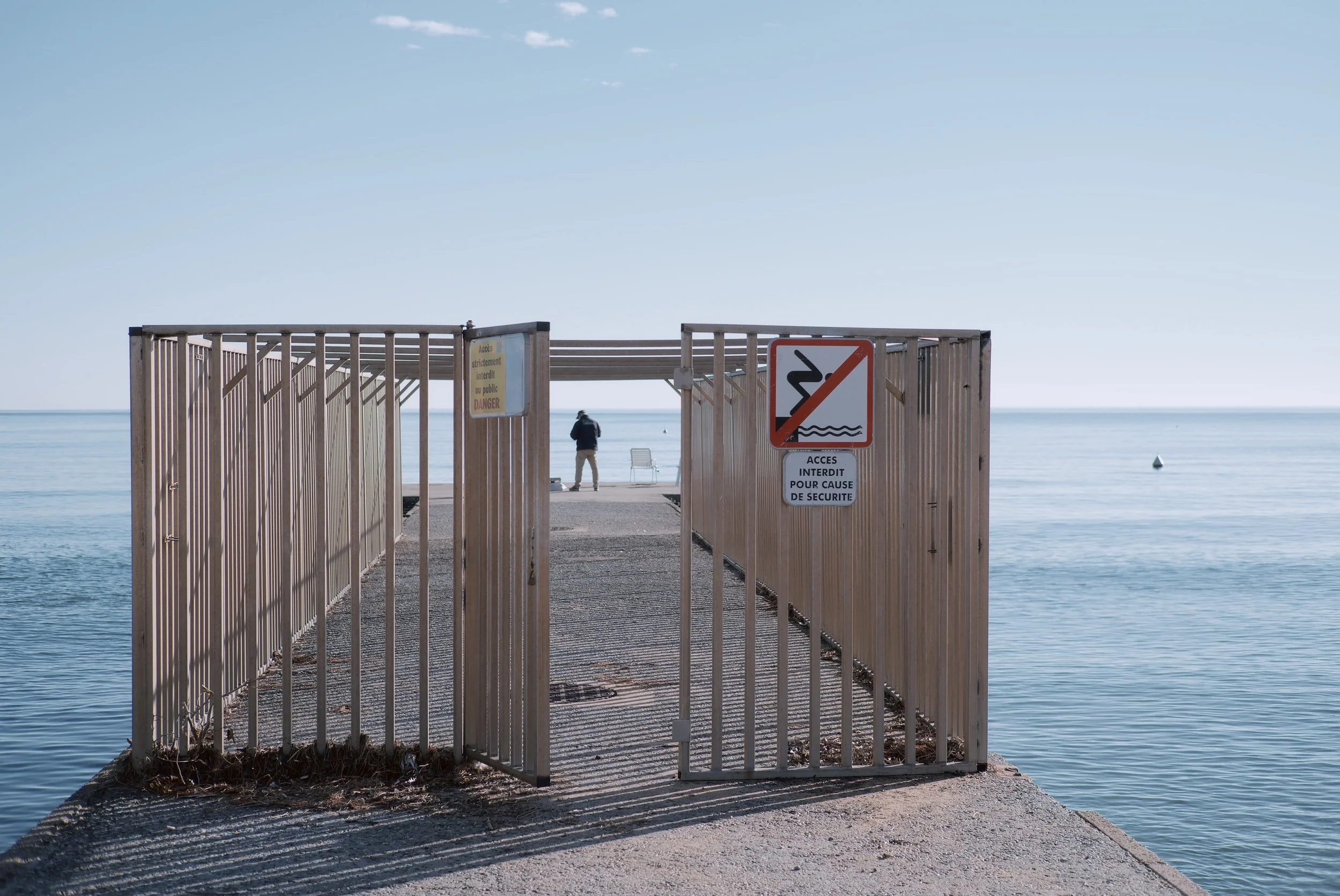
Stephanie Braconnier via UNSPLASH
All across shelters and makeshift displacement camps across Central America, families impacted by the flooding and devastation that followed Hurricane Eta and Hurricane Iota, keep arriving, in need of assistance.
The International Federation of Red Cross and Red Crescent Societies report over 4.3 million Central Americans - including 3 million Hondurans - have been impacted by Hurricane Eta alone, which struck Nicaragua on November 3rd. Those numbers rose when Hurricane Iota struck two weeks later, again in Nicaragua on November 16th.
The Red Cross America’s division described conditions as a "triple emergency” in Honduras and Guatemala of: hurricane Eta, the COVID-19 pandemic, and the years-long drought that has deeply impacted agriculture, making even subsistence agriculture, impossible across large sections of the region. The Red Cross says it is now readying for internal displacement, as well as migration across borders, as a result.
Giovanni Batz, a postdoctoral fellow at UC Davis says marginalized and oppressed groups such as Indigenous communities, Afro-descendants and Black communities all across Central America have been deeply impacted.
Batz, who is in touch with these impacted populations, spoke to Democracy Now about long ignored climate change warnings by the Indigenous communities that have gone unheeded, compounded now by deforestation and drought, have made conditions worse, especially for marginalized populations. In addition, extractive industries, along with its mega projects like hydroelectric plants, dams and mines, have caused environmental damage, even diverting, flooding and contaminating rivers.
Regional migration experts in advocacy and academia expect the multiple issues of poverty, drought, gang violence, instability, all now compounded by country-wide devastation from twin storms, will force more migration across borders. The election of Joe Biden, who has struck a decidedly more humane tone towards migrants and asylum-seekers, is also expected to play a role.
Last week, Representative Nydia Velázquez introduced a bill to grant Temporary Protected Status (TPS) to Guatemalans, Hondurans and Nicaraguans already residing in the US. TPS was created by the US Congress in the Immigration Act of 1990 to grant temporary immigration status to foreign nationals from designated countries in need of protection due to conflict, environmental disaster, or extraordinary temporary conditions.
In 1998 following Hurricane Mitch, Hondurans and Nicaraguans were granted TPS.
Despite this, the Trump administration has sought to end TPS and deport TPS grantees, including those who have resided in the US for decades. Of the Central American countries impacted by the twin storms, El Salvador, Honduras, and Nicaragua technically have TPS status through January 4, 2021. However, the Trump administration terminated their TPS designations, but those have not gone into effect as yet, contingent upon two active lawsuits.
Earlier this month, following hurricane Eta, Guatemala requested the United States allow Guatemalans already residing in the US to remain on humanitarian grounds.
The National TPS Alliance has called on the US government to immediately restore the TPS program and ensure immediate humanitarian relief for Central American countries. A spokesperson for the Alliance said the dire conditions in Central American countries point to the exact reasons why TPS was created - that of protection. ( AP, Democracy Now, Reuters)
Last summer, the United States Bureau of Population, Refugees and Migration (PRM) announced a “new approach to address the impacts of climate change on migration and displacement”. The announcement emphasized the importance of developing “humane policies” and outlined the four principal objectives of the US in addressing the impacts of climate change on migration and displacement. While a promising sign, so far this “new approach” has resulted in little substantive change, all while the US struggles to implement coherent and effective immigration and climate policy.
Gaza is one of the world’s most densely populated places. A narrow strip of land only 141 sq. miles (365 sq. km.), it is home to 2.1 million Palestinians, 81 percent of whom are refugees. In addition to the humanitarian and political crises created by multiple years of recurring conflict, Gaza is also highly vulnerable to climate change. This includes experiencing more frequent and increased cold snaps in winter months and temperatures rising 20 percent faster than anywhere else in the world.
The International Committee of the Red Cross (ICRC) has examined the intersections of the environment, climate change and conflict extensively, and as the ICRC puts it, Gaza is “where the effects of climate change exacerbate serious humanitarian needs resulting from an unresolved conflict.”
Assistant High Commissioner for Protection Gillian Triggs said recently that while opening up the 1951 Refugee Convention to reform would be a risky step backwards, there was a “good case to be made” that a new protocol on climate refugees should be introduced.
The comments from one of UNHCR’s most senior officials come just a few months after a report by the UN Special Rapporteur on the promotion and protection of human rights in the context of climate change highlighted the apparent reluctance of UN agencies on refugees and migration to provide a total assessment of the number of people displaced internationally as a result of climate change. In that report, Special Rapporteur Fry explicitly called for an optional protocol to the 1951 Convention, commenting that it would be logical for UNHCR to administer such a protocol in coordination with IOM and other relevant bodies.
Following an official visit to Honduras, UN Special Rapporteur on the promotion and protection of human rights in the context of climate change, Ian Fry, is sounding the alarm about how climate change impacts are pushing many people to leave the Central American country.
Fry found that communities are facing prolonged droughts, severe flooding events, and coastal erosion and inundation due to climate change. These impacts are “forcing people to leave their homes and seek more sustainable livelihoods” elsewhere in order to avoid starvation and a lack of safe drinking water. Industries that provided stable livelihoods just a few years ago are now being swallowed by rising seas, creating “‘ghost communities with only old people left’”. In one Dry Corridor community the Special Rapporteur visited, drought has forced 80% of residents to leave Honduras, given how limited livelihood options are elsewhere in the country.
Mirroring increased interest in the media and even among the public at large, the link between climate change and forced migration received some high-profile attention during September’s Africa Climate Week and Africa Climate Summit, which ran concurrently in Nairobi in early September.
Perhaps the most notable development of the week was the signing of the Kampala Ministerial Declaration on Migration, Environment and Climate Change (KDMECC-AFRICA). 48 African nations have now agreed to adopt the declaration, which was first put forth in July 2022 and at the time signed by 15 states. The expanded consensus around the declaration represents a major milestone in addressing displacement as a result of climate change in the most climate-vulnerable continent in the world. Parties to the declaration commit to using a “human rights-based approach in the design and implementation of policies relating to the climate change-migration nexus.”
The individuals facing the worst consequences have played no part in creating this climate crisis. Adequate protection must be provided to individuals made vulnerable and exposed to climate hazards such as extreme temperatures, including by introducing mobility pathways for affected communities and providing funding to countries for the losses and damages caused by climate change in order to develop adequate infrastructure and help build livelihoods for refugees, displaced persons and migrants worldwide.
On the heels of the Africa Climate Week in early September and happening just over two months before the beginning of COP28 in Dubai, on Wednesday UN Secretary-General António Guterres hosted the first-ever Climate Ambition Summit during the UN General Assembly high-level week in New York. As the name suggests, the goal of the summit was to identify and encourage serious and urgent action on climate change.
This is just the latest call for climate action from the Secretary-General. With this summer’s record-breaking temperatures, Guterres remarked that the “era of global boiling” and “climate breakdown” is upon us. These emotive words mirror what civil society organizations and even many governments have been saying for quite some time now: not only must we act now, but we must act at the proper scale, something that is still missing from many talks and proposals.
And while discussions at the international level continue, communities around the world continue to experience loss and damage from climate change. For these communities, high-level talks are a distant echo of what they are seeing each and every day: reduced livelihood options, threats to physical and mental well-being, entrenched poverty and development losses, human rights violations, and forced displacement.
This year’s devastating wildfire season in Canada is a sobering reminder that while some areas are undoubtedly more vulnerable to climate change and its exacerbation of severe climate events, no place is truly safe. Indeed, the planet just endured its hottest three-month period on record, prompting UN Secretary-General António Guterres to declare that “climate breakdown has begun.” Only a coordinated, global response based in solidarity, responsibility, and protection of people will suffice.
Ultimately, the UN Special Rapporteur’s latest report is an urgent reminder that the time to take action on climate displacement is now. While aiming to develop a broader legal framework to protect the rights of those displaced across borders by climate change—such as enhancing existing refugee protections in the 1951 Refugee Convention, Latin American and African regional instruments like the Cartagena Declaration and OAU Convention, as well as exploring a new protocol to address cross border climate change-induced displacement — states must take immediate action to expand the provision of humanitarian visas and provide new, additional, and sustained financial support to ensure that human security is front and center in climate change response.
When it comes to displacement, there is a tendency to focus on one type at a time, usually internal or cross-border displacement. While this can be helpful in developing digestible advocacy messages and manageable policy responses, a siloed approach runs the risk of perpetuating gaps in data and understanding, especially when it comes to displacement as a result of climate change.
Should it be successful, the law would be the first of its kind in Latin America and the Caribbean, a region where the World Bank’s estimates there could be as many as 17 million internal climate migrants by 2050, representing 2.6 percent of the region’s total population.
While the new law only addresses internal climate displacement, it could have significant regional implications as countries continue to step up efforts to address both internal and cross-border movement due to the effects of climate change.
Earlier in the year, the United Nations Development Programme (UNDP) outlined that globally, flood-related disasters have increased by 134% since 2000, and floods are now lasting 29% longer. In fact, it is projected that climate change will push 130 million people into poverty over the next decade, creating multiple development setbacks, while also forcing 200 million internal migrants by 2050.
The resolution, which was adopted by consensus, seeks the opinion of the ICJ on the obligations of states, under international law, to protect other states who are unjustly impacted by the climate crisis as well as the rights of present and future generations against the adverse effects of climate change.
Last week, the Intergovernmental Panel on Climate Change (IPCC) published its Sixth Synthesis Report, summarizing the state of knowledge on climate change science with a clear message: “if we act now, we can still secure a liveable sustainable future for all.” The report also makes clear that yes, the climate is changing and with it, patterns of migration as well.
Whether in the United States or Bangladesh, we are at a critical juncture regarding climate change and displacement, and it is important to effectively communicate the issues at stake. Unfortunately, the “mass exodus” remark and the explicit linkage to “security” by multiple speakers during the Security Council session, despite coming from international leaders who are understandably frustrated with global inaction, risks sparking fear amongst the public and even policymakers.
Climate change is increasingly driving migration throughout the world. Yet, as climate change weakens economic growth in countries in the Global South, many are finding themselves too poor to migrate, stripping many of a key climate adaptation tool. This was one of the main findings of a recent study by the Potsdam Institute for Climate Impact Research (PIK).
The UN Human Rights Committee has found that Australia violated the rights of Torres Strait Islanders by failing to adequately protect them from the impacts of climate change, in a major decision with implications for climate justice and the protection of Indigenous Peoples’ rights in the face of climate change, as reported by Kristen Lyons in the Law Society of New South Wales Journal. The Committee concluded that Australia’s insufficient climate action constituted a violation of the Islanders rights to enjoy their culture and “be free from arbitrary interferences with their private life, family, and home,” as the UN High Commissioner for Rights press release states.
The aid flowing to Pakistan from the US, UK and other developed countries is not only insufficient, it’s inadequate in the face of the Global North's historic and continued carbon emissions. Aid alone will not be sufficient to respond to the growing climate crises in Pakistan and Global South countries. The era of loss and damage from the climate crisis is here, and it’s time for the Global North to pay up for its part in creating and perpetuating the climate crisis.
Not only are rural households predominately reliant on agriculture and thus highly vulnerable to climate change, but due to a lack of support financially both nationally and internationally, they are forced to spend their own limited resources on preparing and responding to climate disasters. In the face of all this, the recently concluded preparatory climate talks for COP27 in Egypt in November, saw wealthy high emitting nations side-step previous promises and obligations to address the loss and damage the climate crisis is inflicting on the Global South. Once again, promises made, but not kept, and one need only look to the present floods in Bangladesh and so many more disasters to see the inherent injustice in this.
Human migration due to droughts in particular will increase by at least 200% throughout the rest of the 21st century, according to a recent study published in International Migration Review. The Stony Brook University team worked from 16 climate models and social science data to generate their predictions, focusing on two scenarios. In an ‘optimistic’ scenario, in which countries live up to their Paris Agreement commitments, the percentage increase in drought-induced migration stands at 200%. In a pessimistic scenario, based on current energy use and emissions, that number has the potential to reach a staggering 500% increase.
Reflecting the need for fairness and solidarity in any framework meant to tackle the complex issues around climate migration, the researchers argue that those seeking asylum should be absorbed in host countries according to cumulative greenhouse gas emissions. This principle of proportionality is central to ongoing discussions about climate change, particularly loss and damage. Indeed, while it continues to ruffle feathers in wealthy countries, it is undeniable that the people and countries least responsible for climate change are bearing the brunt of its negative effects.
Agroforestry involves a wide range of trees that are protected, regenerated, planted or managed in agricultural landscapes so that they interact synergistically with annual crops, livestock, and wildlife. Not only is agroforestry positioned to enhance general crop yields through regenerative farming techniques, but fruit and other trees planted can themselves be used to generate food and other commercially marketable products, such as timber, fodder for livestock, fuel, and medicinal herbs. By improving both food and economic security–arguably the biggest consequences of climate disruption and the greatest drivers of climate migration globally–agroforestry embodies adaptation in the most holistic sense of the term. Not to mention, of course, the mitigation objectives that can be achieved simultaneously. In fact, when done on a sufficiently large scale, carbon credits can be tapped to provide a direct source of finance to those communities leading the change.
A new UK foreign office-funded study has found extreme climate events like cyclones, storms, floods and drought are driving residents in Odisha’s coastal Kendrapara district and Jharkhand’s Palamu districts to migrate. Alarmingly, the social protections available are increasingly stretched beyond capacity to accommodate the increasing climate events, driving residents to migrate and in turn, increasing their vulnerabilities to trafficking.
At the same time, an extreme heat wave has been impacting thousands across India and Pakistan, which the World Weather Attribution says is 30 times more likely because of the effects of climate change, and in fact, “would have been extraordinarily rare without human-induced climate change.”
On April 27, 2022, the Climate Vulnerable Forum (CVF), an international partnership of global South countries highly vulnerable to a warming planet, released a telling report titled “Climate Survival Leadership Barometer”. The report was released under the CVF’s signature initiative “Midnight Survival Deadline for the Climate”, which served to remind governments of the obligations they had taken on at the UN Climate Change Conference at Paris, or COP21, in 2015. The report analyzes updates to national mitigation and adaptation targets – referred to as “Nationally Determined Contributions” (NDCs) that countries committed to revise every five years starting in 2020 to deliver on the Paris Agreement. Some notable findings on the adaptation side are worth highlighting, for they speak to the collective will (or lack thereof) of governments to institutionalize the very resiliency-building measures needed to address root causes of migration in a climate crisis-stricken world.
Eighty-five percent of the world's refugees are hosted by the world’s poorest countries. More often than not when they escape from a dire situation, they find refuge in a place with fewer resources than where they fled. Because of this, it largely falls on the refugees themselves to sustainably develop their communities. In many places, despite the hardships, they are doing just that.
As climate disasters increase, so too does the cost associated with them. A new UN report on disaster risk reduction shows that disaster events across the world have steadily increased over the past few decades and they are only predicted to grow in regularity, to the point where we will soon be facing 1.5 disasters each day across the world.
The average number of disaster events per year between 1980 and 1999 was 200, and in 2015 there were 400. By 2030, the number of disasters may balloon to upwards of 560 per year and the average trends suggest a 30% increase from 2000 to 2030.
Due to a lack of economic opportunity and common natural disasters, Odisha has long been a source of migrant workers both in India and abroad. For decades, economic stagnation in the region paired with growth and urbanization around other parts of India meant that Odisha was already a hotbed for migrants before climate change became a more prominent push factor. Today, it is one of the most affected regions in India by climate change which is only pushing more and more people to migrate both temporarily and permanently.
Throughout the 2010s, the lakes in the region, which is Kenya’s portion of the Great Rift Valley, rose slowly, displacing tens of thousands of people. But in 2020 a particularly severe rainy season caused the flooding to accelerate. Lake Turkana, in the arid northern part of the country, actually swallowed a nearby lake altogether. Freshwater Lake Baringo, further south, flooded eight miles inland and moved dangerously close to a saltwater lake, which would have devastated wildlife in both, with an inevitable impact on the area’s tourism industry, largely centered around the saltwater lake’s famous flamingos. By some estimates, Baringo has risen at least 9 meters since 2013.
It’s been one month since Russia invaded Ukraine, causing 3.5 million people to flee the country, an overwhelming majority heading west into the European Union (EU). As the smoke has cleared from the initial onset of the invasion, a picture has begun to emerge highlighting the either “unusually generous or overtly racist” stance taken by western media and the EU towards Ukrainian refugees in contrast to other non-Ukrainian refugees.
When those displaced by climate induced famine or conflict come from Africa, the Middle East or South Asia seeking refuge, can they expect such a warm reception from the EU and other wealthy nations as Ukrainian nationals have received? Sadly, refugee policy in Europe and other wealthy western nations have made it clear this is not the new status quo in handling refugees.






























